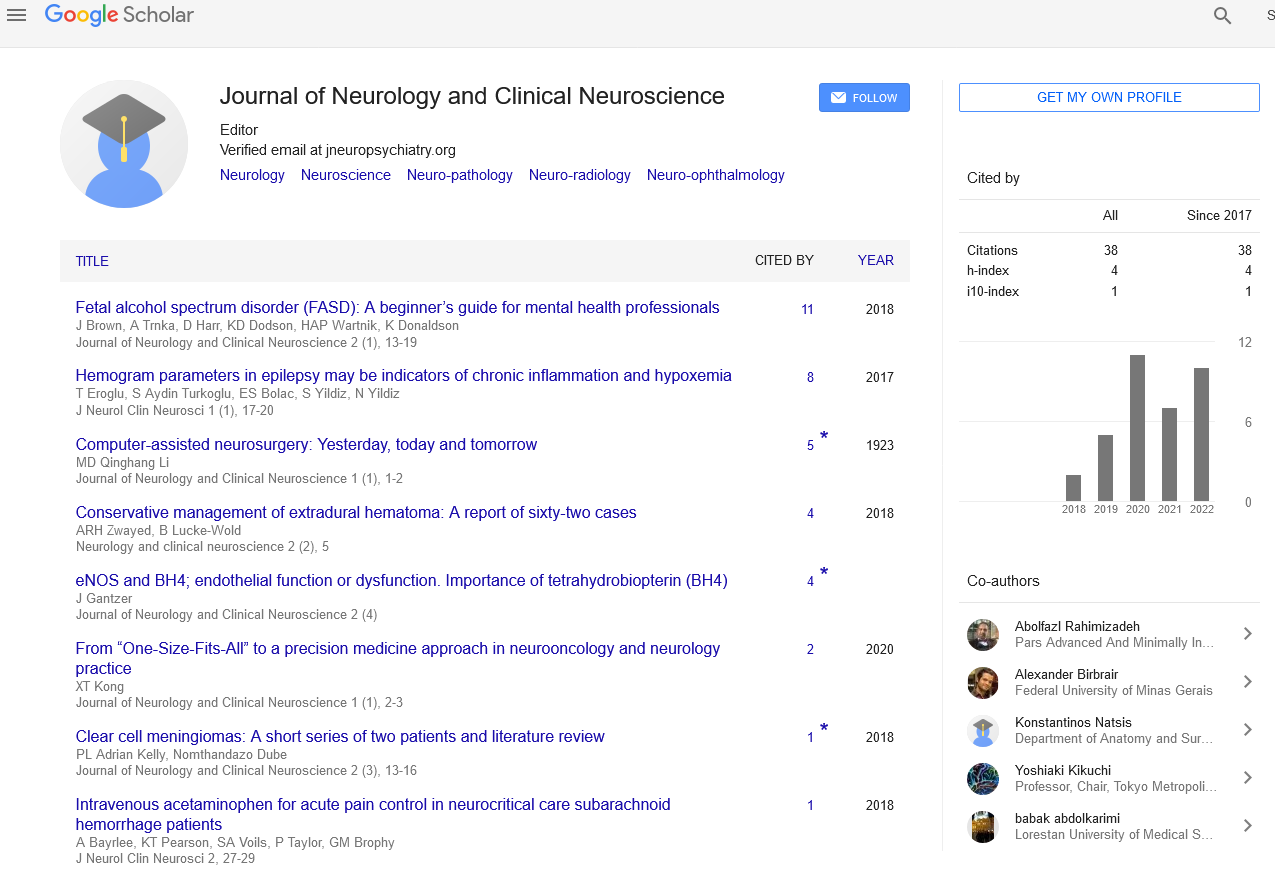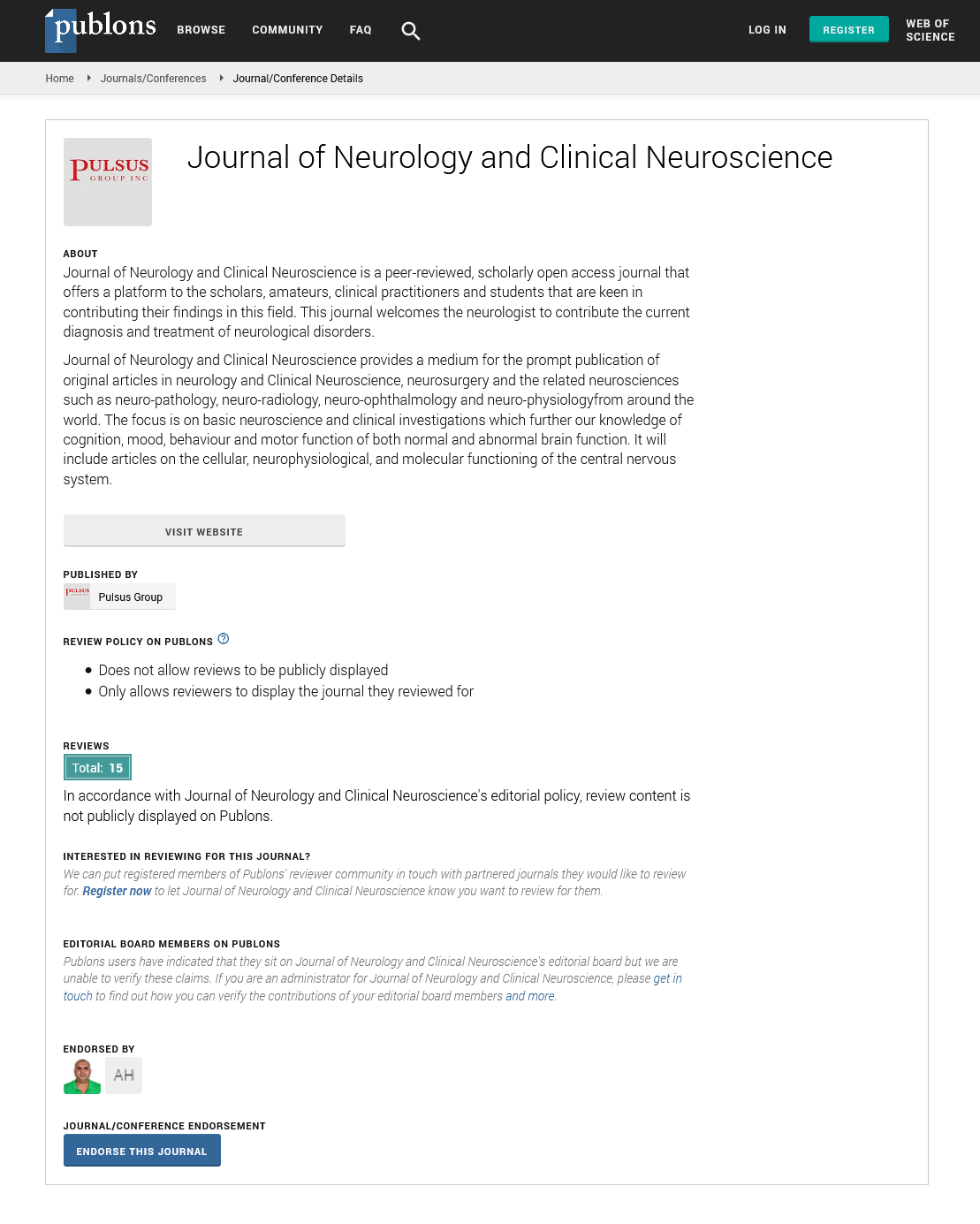Sign up for email alert when new content gets added: Sign up
Covert cognitive-communication impairments after brain injury and how to maximise interactions with your patient
8th International Conference on Neuroscience and Neurological Disorders
September 28, 2022 | Webinar
Claire MacLaine
HCML Rehabilitation Solutions, UK
Posters & Accepted Abstracts: J Neurol Clin Neurosci
Abstract :
Cognitive-communication disorders are prevalent in people with brain injury and are often missed if not diagnosed by a specialist speech and language therapist. If a patient is not verbally supported to compensate for these issues, they may misunderstand and not be able to engage effectively with others. This has negative repercussions for their everyday life. Patients with brain injury often miss subtext in language, they lack the ability to understand metaphor and humour, and they have poor comprehension of the linguistic concepts of time processing and spatial awareness. These basic linguistic traits are further impeded by poor memory and attention skills, dysexecutive disorder, and impaired social cognition. Their overall central coherence is impaired, and this can leave them socially isolated. With a lack of cognitive-communication skills, patients with brain injury can become excluded from conversations as they lack linguistic error detection and repair strategies, and this can lead to inappropriate social behaviours. This has a detrimental impact on their mental health, social and vocational success, and can cause family breakdown. Many clinical services for people with brain injury focus of the immediate needs of rehabilitation to be able to be discharged home. The long-term impact of cognitive-communication impairment is often not addressed at this time by a specialist speech and language therapist, and the impact has a profound impact on the patient’s long-term functioning. This humorous presentation highlights cognitive-communication issues, providing practical strategies to modify our communication to develop better interactions with our patients. The ultimate goal is to improve the quality of interactions for these patients to support them to engage more successfully in their community.





